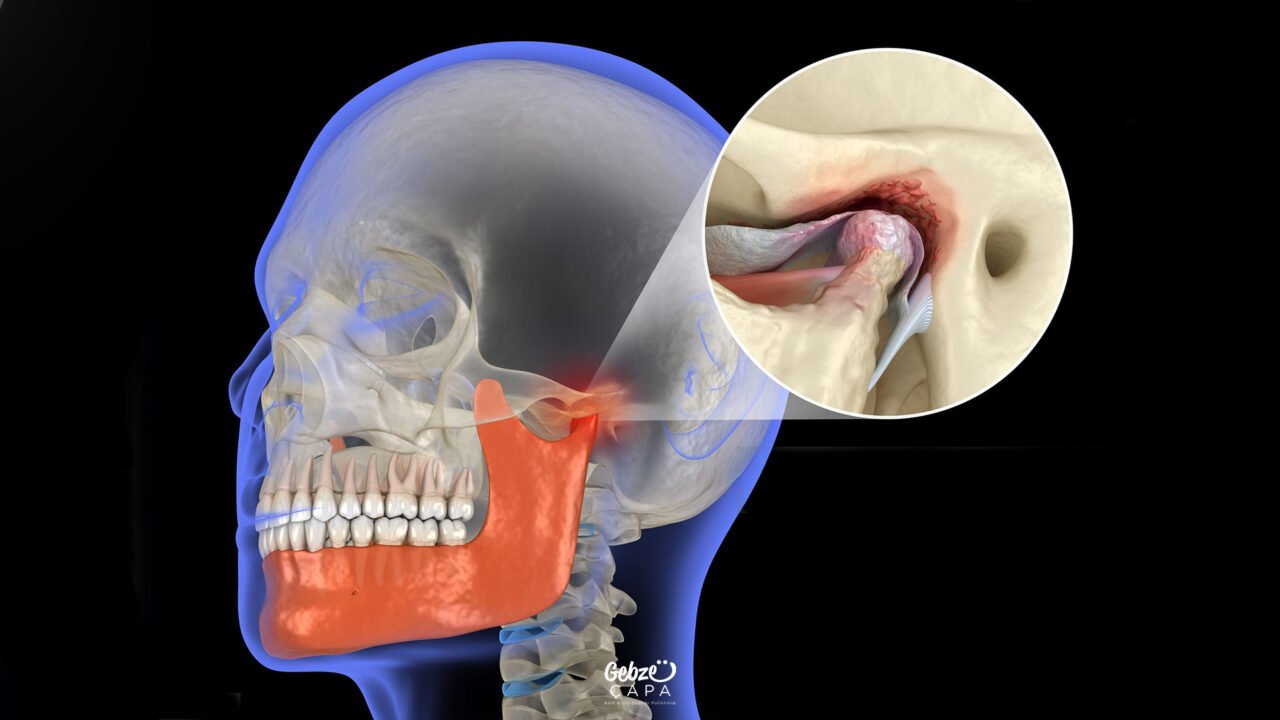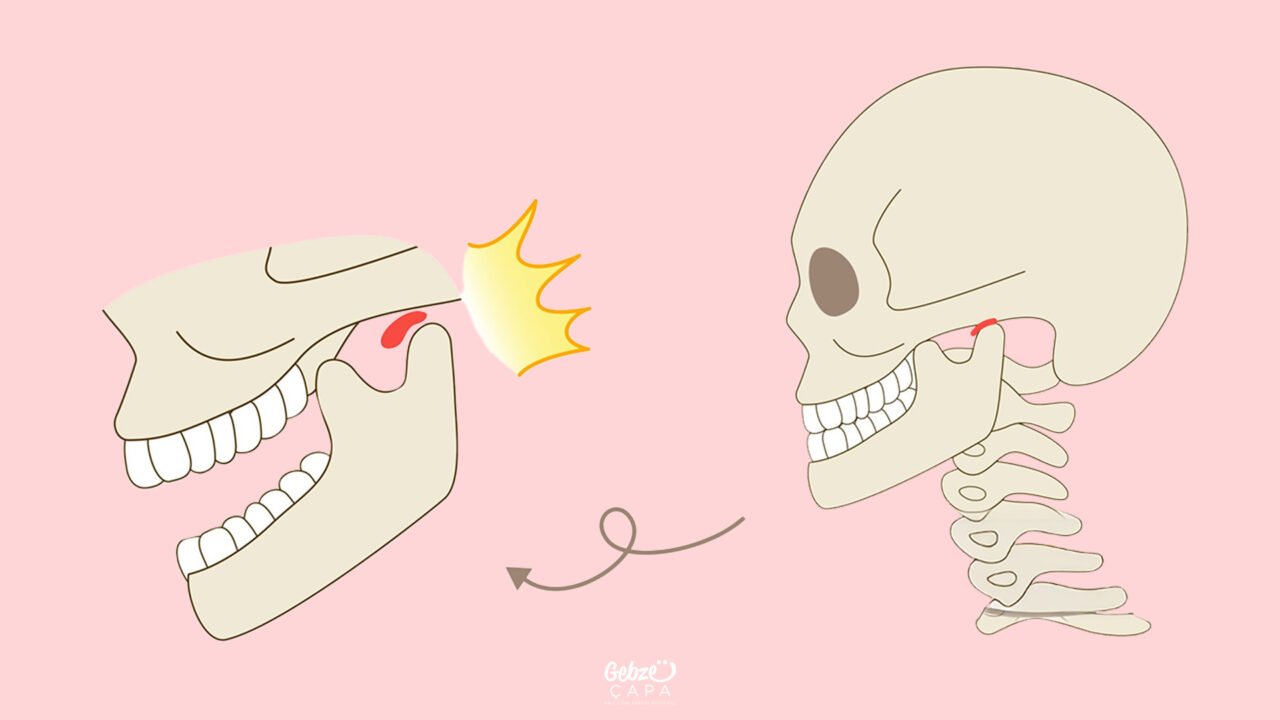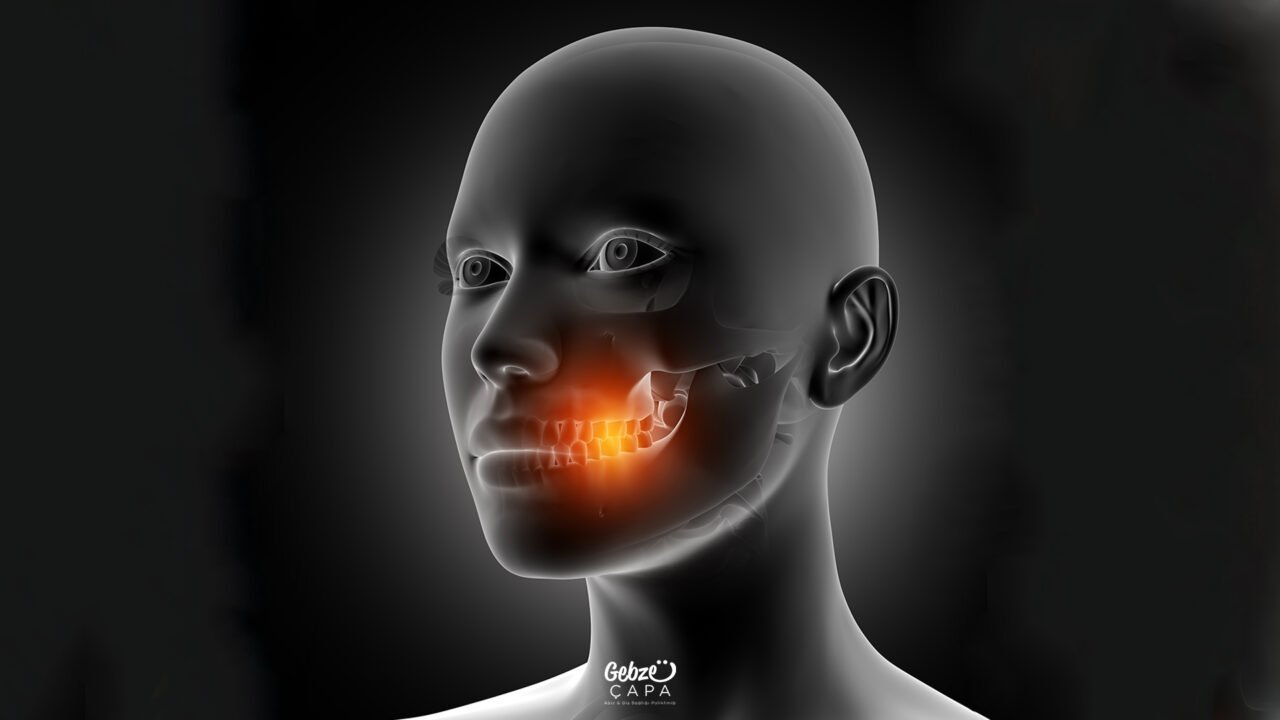Jaw Mass
Jaw cracking is a health problem that often goes unnoticed in daily life, but in some cases it can reach a level that can negatively affect a person’s quality of life. This condition, defined as “temporomandibular joint (TMJ) sound” in the medical literature, manifests itself with clicking, cracking or friction sounds coming from the jaw joint. Although these sounds heard while eating, yawning, talking or opening and closing the mouth are seen as a normal condition by most people, in some cases they are associated with serious problems that can affect jaw functions.
In fact, jaw cracking is not a disease on its own; it can be a symptom of different underlying causes. Many factors such as stress, teeth clenching habit (bruxism), displacement of the disc in the jaw joint, muscle spasms or orthopedic jaw disorders can lead to this condition. Jaw cracking, especially if it is long-term or accompanied by pain, can be a health signal that should not be ignored. In some cases, it can occur with symptoms such as headache, tinnitus and neck pain, which shows that the problem is not limited to the jaw.
What is Jaw Clump?
Jaw clunk is a condition that surprises and often worries people when noticed in daily life. In its simplest definition, it is the clicking, crackling or friction sounds coming from the jaw joint during jaw movements—especially when opening or closing the mouth. These sounds are sometimes heard as a slight click, and sometimes they can be noticeable enough to be noticed even from the outside. It is usually painless and does not create any feeling of restriction; therefore, many people do not care about this condition. However, like every vocal symptom, jaw clunk may indicate that the body is trying to tell us something.
The jaw joint is known as the “temporomandibular joint” in medical terms and is at the center of many important functions such as chewing, speaking and swallowing. This complex structure works like a hinge between the jaw bone and the skull bone. Even the slightest disruption in this system can manifest itself with vocal symptoms. This is where jaw clunk comes into play. The most common causes of such sounds are the displacement of the disc in the joint, muscle tension, malalignment of the jaw bone or habits such as teeth grinding (bruxism).

Not every jaw sound is a sign of disease. However, if this clicking sound is accompanied by complaints such as stuck jaw movements, morning jaw fatigue, headache, tinnitus, jaw locking or pain, this may be a sign of temporomandibular joint disorders (TMJ disorders). Especially if there is a feeling of stiffness in the jaw or tension in the facial muscles when waking up in the morning, these symptoms should be taken seriously.
What Causes a Clenched Jaw?
A clunky jaw is a complex condition that can occur when many different factors come together. One of the most common causes of this audible symptom is temporomandibular joint (TMJ) disorders. The disc that forms in this delicate joint structure that connects the lower jaw to the skull, inflammation or structural imbalances can cause clicking or crackling sounds during jaw movements. However, especially at night, unconsciously clenching or grinding your teeth, i.e. bruxism, can create constant pressure on the jaw muscles and joint, causing both clicking sounds and pain.
Today, increasing stress and anxiety levels have made such problems even more common; because under intense emotional pressure, the jaw muscles involuntarily tighten, causing irregularities in joint movements. Another important factor that can cause a clunky jaw is trauma. Especially after blows to the jaw area, falls or accidents, microscopic damage can occur in the joint, and this can manifest itself with audible symptoms over time.
Dental causes should not be ignored. Missing or crooked teeth, incompatible dentures or malocclusions in the lower and upper jaw can cause additional load on the joint during chewing and increase the clicking sounds. In addition, some habits that we unknowingly acquire in our daily lives can also trigger this condition; for example, constantly chewing gum, opening the mouth too much while yawning or breathing through the mouth, which can have a detrimental effect on the jaw joint in the long term.
While all these factors can cause jaw clicking on their own or together, this condition can be completely temporary in some people, while in some cases it can be a sign of serious jaw joint problems that require treatment. Therefore, correctly understanding the underlying cause of jaw clicking is the first step towards a permanent solution.
What Are The Symptoms?
Jaw clefting can occur alone or with the following symptoms:
- Pain during jaw movements
- Difficulty or limited mouth opening
- A feeling of fullness in the ear
- Head, face, neck pain
- Closed jaw
- Discomfort while chewing
These symptoms may indicate a jaw joint disorder and definitely require a specialist evaluation.

When Should I See a Doctor?
Not every jaw cracking is necessarily a cause for concern; however, some symptoms may indicate that the condition is more than just an ordinary cracking. If there is pain along with the jaw cracking, limited jaw movement, or the jaw occasionally locks, these symptoms may be a sign of a more serious problem with the jaw joint.
If there is a feeling of difficulty opening and closing the jaw, or if the condition is accompanied by complaints such as pressure in the ear, ringing, or hearing loss, it is inevitable to see a specialist. Similarly, headaches, tension in the facial muscles, or pain radiating to the neck area may also be related to jaw joint problems.
Such symptoms may increase over time and negatively affect the quality of life if left untreated. Therefore, consulting a dentist or jaw surgeon at an early stage is the healthiest way to prevent the progression of possible jaw joint disorders and to begin a more effective treatment process.
How to Get Rid of a Clenched Jaw?
Treatment of a clunky jaw varies depending on the underlying causes. While some cases may have advanced problems that may require surgical intervention, conservative, non-surgical methods provide highly effective results for most people. Especially for individuals with teeth clenching or grinding habits, night plates (dental plates) specially prepared for the individual protect the jaw joint and provide relaxation throughout the night, significantly reducing the clunky complaint.
In addition, physical therapy applications, massage techniques and special exercises that strengthen and relax the jaw muscles can regulate jaw functions. Hot and cold compresses that can be applied at home can both relieve pain and reduce clunky sounds by reducing muscle tension in the jaw area. Stress is also one of the factors that directly affects jaw health; therefore, relaxation techniques such as yoga and meditation or, when necessary, reducing stress with psychological support help prevent involuntary contractions of the jaw muscles.
Daily eating habits also play an important role in the treatment process; avoiding hard, shelled foods or foods that require intensive chewing supports the process without tiring the jaw muscles. Although treatment is planned differently for each individual, the important thing is to avoid behaviors that tire the jaw joint and to take the necessary precautions in a timely manner.

How to Prevent Jaw Clenching
There are some simple but effective measures that can be taken in daily life to minimize or completely prevent problems related to jaw clenching. First of all, constant gum chewing can put pressure on the joint by overworking the jaw muscles, so it would be beneficial to limit this habit as much as possible.
For individuals who unknowingly clench or grind their teeth while sleeping at night, using a night plate both protects the teeth and helps the jaw joint to rest. Sudden and uncontrolled movements made while opening the mouth can also damage the jaw joint; therefore, it is important to be careful and move slowly, especially when yawning or opening the mouth wide. Teeth clenching behaviors that are done unknowingly during the day can increase even more during stressful periods; therefore, being aware of this habit and consciously trying to relax the jaw muscles is very important for jaw health in the long term.
Even small techniques such as deep breathing and relaxing the facial muscles, especially during moments of tension, can reduce the pressure on the jaw muscles and prevent symptoms such as clenching and similar. These simple habit changes contribute greatly to keeping the jaw joint healthy.


